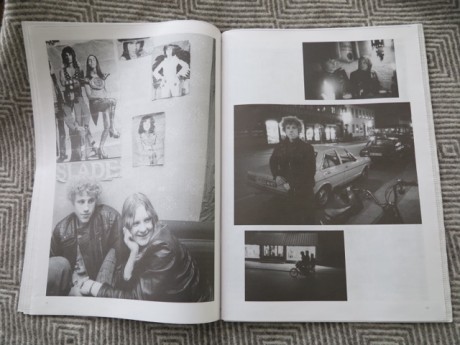


Asif Kapadia: Amy /2
I næste uge inviterer DR2 Dokumania til gratis visninger af Asif Kapadias (Senna) film over sangerinden Amy Winehouse’s liv og karriere. Den dejlige film havde biografpremiere sidste år og denne velkomne serie repriser nu vil foregå i Aarhus, Viborg, Horsens, Svendborg og København.
Her kan man se filmen: JYLLAND Tirsdag den 5. juli DokuramAa Kunsthal Aarhus – i baggården J.M Mørks Gade 13 8000 Aarhus C / Torsdag den 7. juli Kulturjægerne Viborg Kunsthal, Riddergade 8 8800 Viborg / Fredag den 8. juli Jernlageret Horsens Havn, Jens Hjernøes Vej 10-12 (mellem Havnetrekanten og Lystbådhavnen) 8700 Horsens FYN Torsdag den 7. juli Dokken Ribers Gård ved Harders, Møllegade 36 5700 Svendborg SJÆLLAND Torsdag den 7. juli Videomøllen Krydset mellem Ravnsborggade og Sankt Hans Gade 2200 København N / Søndag den 10. juli Carpark Movie Nights Under Bispeengbuen mellem Nordre Fasanvej og Bispeengen 2000 Frederiksberg
Filmen starter klokken 22.30, men tjek det lokale event for, hvornår arrangementet går i gang. Man kan læse om arrangementerne på www.dr.dk/dokumanialive Amy får tv-premiere på DR2/Dokumania til efteråret.
Jeg kan kun anbefale gensyn på gensyn, Kapadias helt særegent vellykkede film holder til utallige. Sådan skrev jeg om den: “… Jeg gik til filmen uden specielle forudsætninger, kendte ikke Amy Winehouse, kender faktisk ikke meget til jazz, har slet ikke forstand på jazz. To af mine venner tog mig med og med vilje lod jeg være at læse foromtaler og anmeldelser. Men jeg var fordomsfuld, ventede et musikerportræt, et stykke journalistik, ja, ventede et konventionelt værk bygget af arkivmateriale og interviews med Winehouse’s familie, venner og kolleger.
For så vidt netop hvad det viste sig at være, men i Kapadias film er disse byggesten brugt til at konstruere et filmværk, som i stedet får mig til at tænke på de store skæbnefortællinger som Jacobsens Fru Marie Grubbe (1876) og Duras’ India Song (1975), og den mellemliggende store gruppe af sådanne alvorligt gjorte skildringer af intense kvindeliv i buers stigning og fald, korte eller lange, men uafvendelige…” Læs mere
